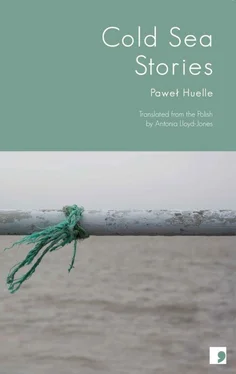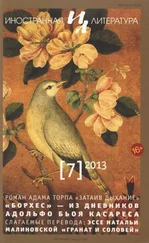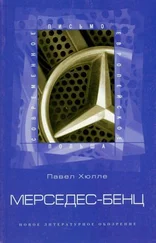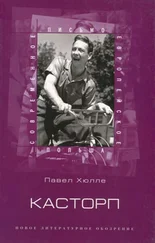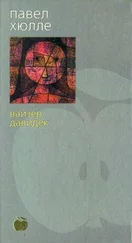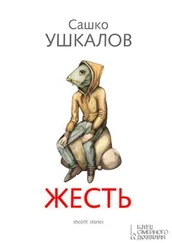Next day, on the dot of noon, he set out onto the ice. He passed bays and inlets, and ran across some wrinkled patches of snow. Nowhere did he meet the bizarre eccentric. At one of the jetties he ate a sandwich and sipped from a thermos of hot tea. He was tired by now. Fine snow began to fall from clouds, which were drawing in from Gutkowo. Before he knew it, only minutes later, he found himself in the middle of a blizzard. He had lost his sense of direction: he might just as well be skating towards home now as in the opposite direction, towards the Old Manor.
‘That’s all I needed,’ he thought, ‘I’ll keep going round in circles until dusk, and then they’ll find me on the shore, or somewhere in the middle, frozen to death like a soldier retreating from Moscow…’
He wasn’t afraid of death, but the thought that it could come right now, when he had lost his way out in the open, was very annoying. It was snowing more and more heavily, and he was probably turning circles. He slowed down, and heard someone else putting on the brakes beside him.
‘Reverend Walker,’ he shouted. ‘Please stop fooling around! Where are we?’
He was answered by laughter. Ringing, female laughter.
Straight towards him, out of the white mist came Julia.
She was wearing a down jacket and a woollen hat, the ones they had bought for their trip to Patagonia.
‘That’s impossible,’ said Joachim, ‘That’s contrary, that’s entirely contrary, not just to my notions – it’s contrary to the laws of physics!’
‘Are you sure?’ laughed Julia, looking him straight in the eyes. ‘I’ve waited so long for you.’
‘So I’ve died,’ he sighed. ‘At last. So this is what it’s like?’
Julia took off a glove and touched Joachim’s cheek. Her hand was warm and smelled of almond lotion. He remembered that smell. He kissed her fingers.
‘Can you explain it to me?’ he asked.
‘There’s a special point,’ she said, putting on the glove, ‘where all the laws of physics are broken. The crooked lines of time run together. It’s like a sort of loop.’
‘You mean to say there’s a point like that just here?’
‘Uh-huh,’ she said, putting a sweet, which she had taken from her bag, into her mouth. ‘Just here. There are very few of these places. Very few indeed. But you silly boy, you refused to come over here. I had to work pretty hard at it. First the sweet flag outside the Geological Museum.’
‘So that was you? In those sandals that didn’t match?’
‘Let’s say it was.’
‘And that oddball in the hat and the frock coat?’
‘Do you remember us looking at him in the museum? You liked him so much. I thought when you saw him you’d get the whole idea.’
‘So where are we going?’ He took Julia by the hand. ‘Where to now?’
‘That depends on you. You can go back to your sister’s house. She’s waiting for you. Or we can go off and turn a new circle together. It will take a while,’ she said, laughing. ‘Here, time is nothing but the image of eternity set in motion.’
They headed off together, holding hands like a pair of high-school kids at the ice rink.
‘Can you see the past from here?’ he asked.
‘It’s not that simple,’ said Julia, frowning. ‘Here there is no past and no future. You’ll soon understand.’
They emerged from the blizzard. All around the lake he saw the rising, distant chains of soaring mountains. A little later they passed a man hunched over a hole in the ice. He was wearing a hat with earflaps, and a quilted jacket thrown over his shoulders. He was just pulling a small fish out of the frozen depths. Next to him, a frying pan was already heating on a lighted Primus stove. On the ice behind the fisherman stood a rusty old humpback Warszawa, completely disembowelled.
‘Look,’ he said to Julia, ‘that must be Nowacki. I forgot to ask Marta if he used to frequent our house by the pond. Perhaps I’ll ask him.’ Joachim slowed down.
‘No,’ said Julia, pulling him forwards, ‘it’s not worth it.’
Ukiel-dukiel, crooked crook-iel, hummed the happy Joachim.
And then they both hummed the little rhyme together.
I
IT HAD ALL fallen through. Two days before she was due to arrive, Sabina wrote to say that her daughter’s state of health had badly deteriorated. Instead of Poland she was flying to Boston to take care of her grandsons. She was very sorry. All the more since it was she who had had the idea for them to meet up. ‘I don’t know how to apologise,’ she added at the end. ‘You must be disappointed and angry, but think of me too – you can go there whenever you like, but I may have lost my only chance.’
He wasn’t angry or disappointed. He wrote a short, sympathetic reply, and as he was switching off the computer he merely wondered where the business card with the number of the Stokrotka boarding house had got to. He would have to call and cancel his reservation for two rooms. At last he found the small yellow card right by his desk, on the reference shelf, stuck to the spine of Herder’s Lexicon . When he heard the receptionist’s ringing voice in the receiver, without a second thought he changed the order to just one room. As he drove out of the city the next day, he felt as if Sabina had made the decision for him. In fact he had no desire for a weekend alone, at the close of summer, in a boarding house found via the internet. He decided to take lots of pictures and send the best ones to Sabina. The thought that he would photograph the road between the dunes – which she loved so much – first at dawn, then at sunset, suddenly seemed a perfectly adequate reason for this trip.
But he couldn’t remember this path. Perhaps at this particular spot the dune ran an entirely different way; in any case, he had to go a lot further before he finally found a way down onto the beach. The sun was already very low, there was a cool breeze blowing, and he only spotted one couple lying in a hollow out of the wind. He had seen them earlier, emerging from a brand new Mitsubishi at the boarding house car park: a well-known film director and his youthful boyfriend, who looked like a hitchhiker picked up on the highway. Now they were waving at him. He had no desire to chat, and gave their lair a wide berth, barely raising a hand in greeting. They shouted something, but their words were drowned by the roar of the waves. As he walked up to the water’s edge, he did not turn round in their direction again. He plunged his feet into the water, feeling the pleasant relief of not thinking about anything, but it was short-lived. His mobile phone rang, and on the screen he recognised his wife’s name. Joanna was already home – she had come back from her mother’s earlier than planned. As ever he had forgotten to take out the rubbish, and he hadn’t locked the balcony door. Were they already drunk? There’s no point trying to deny it, she joked – that’s what those old school reunions are for…
As he returned to the boarding house in total darkness, he felt ashamed of the lie, but the thought of what he would have had to say to his wife if she had found him at home was even worse. Somehow he couldn’t come up with a single credible reason why you might cancel a school reunion, even now, when he had had the time to think. A few dozen metres ahead of him he could hear voices: the director’s baritone mixed with the boy’s falsetto. Now and then they stopped and burst into laughter. He stopped too, not wanting to catch up with them. In the cool, still air between the dunes he could smell distinct trails of cigar smoke and a pungent cologne. Sabina had written the first letter a year ago, when by chance she had found his email address. He had replied at once. Then they had exchanged photos too, as if wanting to make sure that after twenty-four years they would be able to recognise each other. On a city street they would probably have passed each other by: she had grown thinner, he had put on weight. Her once chestnut hair with a copper sheen was now hidden by black dye. Not much of his hair was left, but now he had a double chin covered by a closely trimmed beard. She had lost her husband in a car crash. He was married for the second time. When they cycled along the dirt road twenty-five years ago, breathing in the damp scent of the stubble fields, they were completely different people from now. He had thought about it with no regret, but rather curiosity, as he had imagined tonight’s dinner, after which each would go to their own separate room. On the other hand, after all these years he couldn’t imagine their goodnight kiss, even if it were only on the cheek, in the corridor, like something from another time, another world, another story.
Читать дальше
